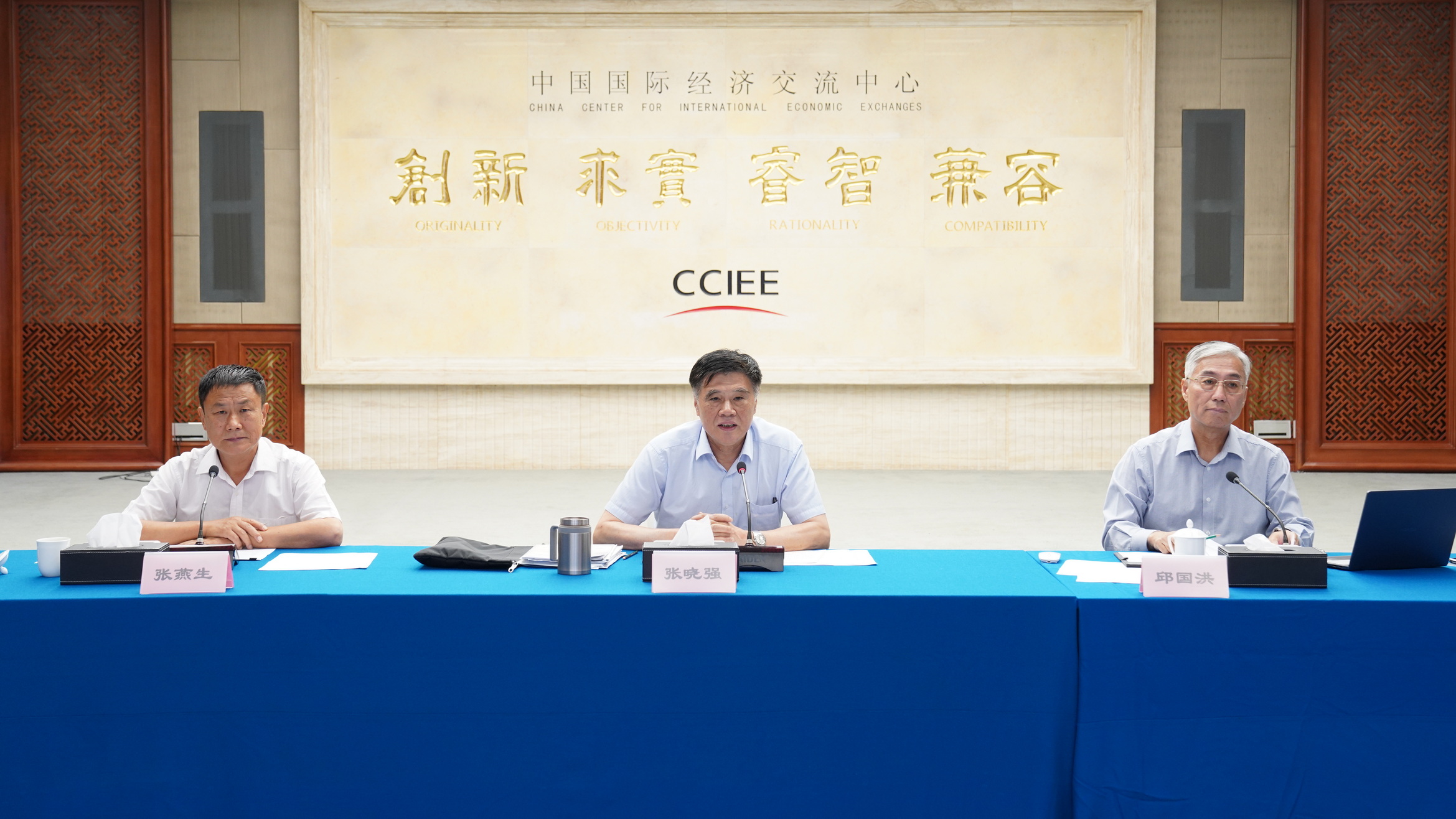CCIEE Held 156th Monthly Economic Talk Themed of A Review and Outlook of China-South Korea Economic and Trade Relations Over the Past Thirty Years
- Time:2022-09-23
- source:CCIEE
On September 16th, 2022, the China Center for International Economic Exchanges (CCIEE) held the 156th "Monthly Economic Talk" via video conference, with the theme "A Review and Outlook of China-South Korea Economic and Trade Relations Over the Past Thirty Years." The conference was chaired by Zhang Xiaoqiang, Executive Vice Chairman and CEO of CCIEE. Qiu Guohong, former Chinese Ambassador to South Korea, Zhang Yunling, Chairman of the Academic Committee of Northeast Asia College at Shandong University and former Director of the Department of International Studies of Chinese Academy of Social Sciences, and Zhang Yansheng, Chief researcher of CCIEE, delivered speeches respectively.

Qiu Guohong pointed out that in the 30 years since the establishment of diplomatic relations between China and South Korea, the two countries have engaged in mutually beneficial cooperation and common development in politics, economy, trade, and culture. Bilateral economic and trade cooperation has not only improved in quality but also achieved significant growth in trade volume, which has promoted employment and economic revitalization in both countries and made important contributions to peace and prosperity in Northeast Asia and even the world. In the overall positive development environment, the China-South Korea economic and trade relations also face new challenges. In the future, the two countries should further strengthen government-level coordination, establish a comprehensive strategic economic dialogue mechanism, fully leverage their respective advantages, explore new areas of cooperation, actively encourage and promote innovation and entrepreneurship cooperation between small and medium-sized enterprises of both countries, and mobilize high-quality enterprise resources to inject new vitality into deepening China-South Korea economic and trade cooperation.
Zhang Yunling stated that since the reform and opening-up, China has consistently had the advantages of low labor costs and a vast potential market, while South Korea has sought to transfer its industries overseas. Both countries have shown strong willingness to cooperate, and with mutual policy support, they have witnessed rapid development in economic and trade cooperation, laying a solid foundation for future growth. However, against the backdrop of strategic competition between China and the United States, the rapid growth of China-South Korea economic and trade relations has been affected, and the instability of the supply chain system between the two countries has increased. Both sides should deepen institutional coordination, implement practical and detailed technical and functional aspects of stabilizing the supply chain, and work together to rebuild confidence in cooperation between Chinese and South Korean enterprises.
Zhang Yansheng believes that in the face of profound changes unseen in a century
, China and South Korea should strengthen comprehensive cooperation that is interconnected rather than decoupled, cooperative rather than confrontational, and open rather than closed. We should jointly promote the advancement of global digital supply chains and intelligent logistics cooperation. In the next step, bilateral cooperation should focus on the micro level, people-to-people exchanges, and improving people's livelihoods, further enhancing the importance attached to the market, enterprises, and society. Both sides should fully leverage their respective strengths, promote division of labor and cooperation between strong players, compete in a complementary manner, and pursue differentiated development. By joining regional cooperation agreements such as the RCEP, they can seize the opportunity of the global economic center shifting eastward. In the context of the "dual carbon" goals, China and South Korea should also collaborate in creating a new model of green and low-carbon cooperation, exploring the establishment of joint research networks in clean energy development and utilization, and promoting regional sustainable development.
After the speeches, the participating experts engaged in interactive exchanges with the media. Some researchers and member units of CCIEE, research institutions, enterprises, and news media participated in the conference through online channels.
